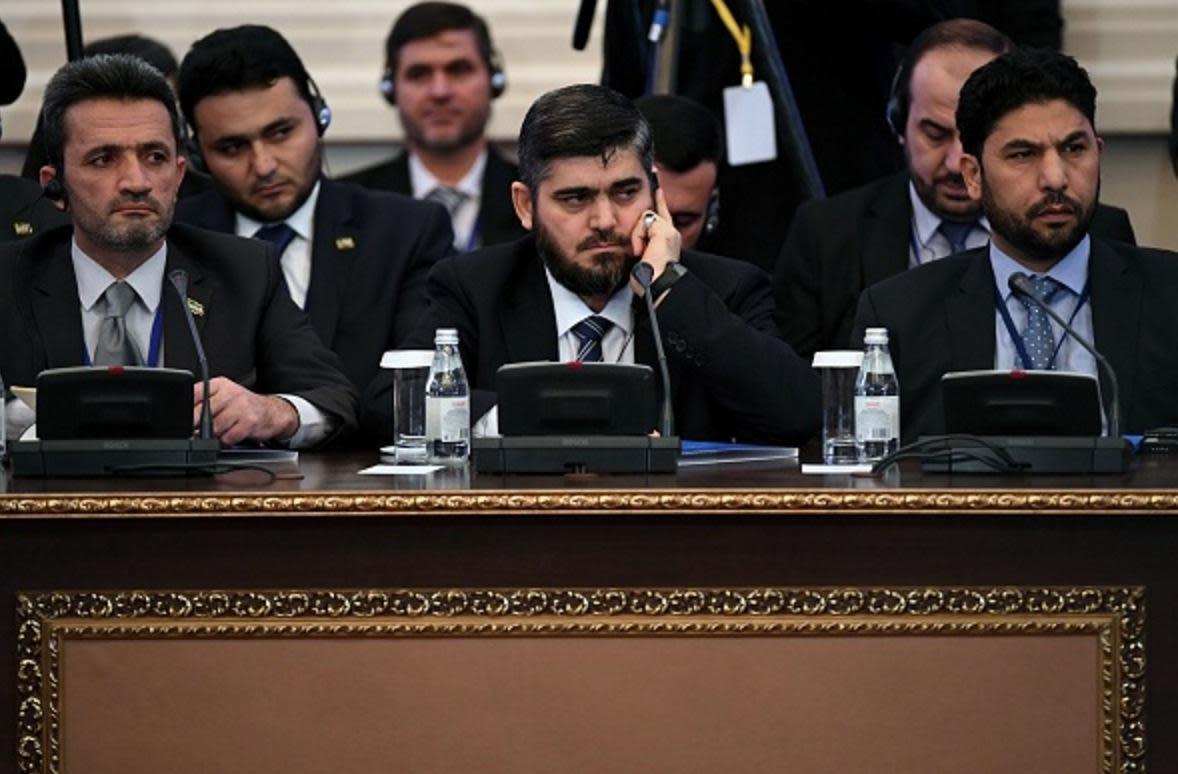Syrian government vows to fight on around Damascus as peace talks with rebels end without concrete progress

The Syrian regime’s representative at peace talks with rebels in Kazakhstan has said that government forces will continue their assault on opposition-held areas near Damascus, despite a pledge to enforce the current shaky ceasefire.
Two days of talks, which marked the first time in the almost six-year-long conflict that the Western-backed rebel opposition coalition and regime representatives had come face to face for negotiations, ended on Tuesday to mixed reaction from the two camps. Neither the rebel nor government representatives signed the proposed agreements.
While the negotiations ended with a deal between the Russian and Turkish brokers, as well as Iran, to implement a monitoring mechanism to oversee Syria’s fragile three-week-old ceasefire, delegates from both the rebel and regime camps came away unhappy with the outcome.
Kazakhstan's foreign minister, Kairat Abdrakhmanov, read out a statement at the close of the two-day meeting, saying the three countries will use their “influence” to strengthen the truce. He did not specify how the agreement would work.
The three backing countries also reiterated “their determination to fight jointly” against Isis and al-Qaeda affiliated groups in the complex war.
Before the talks began the Russian and Iranian-backed Syrian government said it was pushing for an agreement on a full political framework aimed at ceasing hostilities, whereas the rebel delegation – all members of which were military rather than civilian representatives – prioritised ending the current regime offensive on Wadi Barada near the Syrian capital, and the resumption of aid access to conflict areas.
In a statement after the sessions closed, Syria’s ambassador to the UN, Bashar al-Ja'afari, who led the government delegation at the talks in Astana, says the offensive by the government and allied troops on Wadi Baradi would continue as long as “terrorist groups” controlled the main water supply to Damascus.
The capital has been without water for more than three weeks since rebels turned off some supply lines and others were bombed by what monitors believe were government helicopters.
Mr Ja’afari accused the rebels of associating with Jabhat Fateh-al-Sham, an al-Qaeda linked group in the area, a claim which the main rebel umbrella organisation denies.
A rebel spokesperson added that the delegation was unhappy with the continued presence of Iran in the conflict, reiterating the rebels’ refusal to work with the country, which has sent logistical and financial aid as well as fighters to shore up Mr Assad’s presidency.
The Astana talks were supposed to precede restarting the peace process in Syria’s complicated war. As with other conferences, further negotiations will take place in Geneva under the auspices of the UN.
The next round of talks there are scheduled for 8 February.
Agencies contributed to this report

 Yahoo News
Yahoo News 
